 Julia Wester is the Director of Program Development for Field School. She received her PhD from the Abess Center for Ecosystem Science and Policy at the University of Miami in 2016. Her dissertation studied the psychology of decision making about the environment, specifically with regard to limited water resources. She also received a Msc with Distinction in Biodiversity Conservation and Management from Oxford University and worked as a Legislative Aide in South Florida, focusing on environmental policy. She has consulted with nonprofit programs to evaluate their educational programs and assisted with training staff to conduct effective public outreach.
Julia Wester is the Director of Program Development for Field School. She received her PhD from the Abess Center for Ecosystem Science and Policy at the University of Miami in 2016. Her dissertation studied the psychology of decision making about the environment, specifically with regard to limited water resources. She also received a Msc with Distinction in Biodiversity Conservation and Management from Oxford University and worked as a Legislative Aide in South Florida, focusing on environmental policy. She has consulted with nonprofit programs to evaluate their educational programs and assisted with training staff to conduct effective public outreach.
 The folks at Southern Fried Science, as part of their commitment to research and education, have generously given us this platform to talk about our educational start-up, Field School. (Thanks, SFS!). They’ve also been kind enough to get excited about working with us to develop and test new research techniques, study awesome animals and ecosystems, and improve marine science field education—so stay tuned for some of those upcoming collaborations!
The folks at Southern Fried Science, as part of their commitment to research and education, have generously given us this platform to talk about our educational start-up, Field School. (Thanks, SFS!). They’ve also been kind enough to get excited about working with us to develop and test new research techniques, study awesome animals and ecosystems, and improve marine science field education—so stay tuned for some of those upcoming collaborations!
What is field school?
Field School is a hybrid company on a mission to support field research in marine and environmental science, and create high-quality educational and training opportunities for students and the public. We offer hands-on, research focused courses on a variety of topics, from corals to sharks, on our 55’ custom live-aboard research vessel.
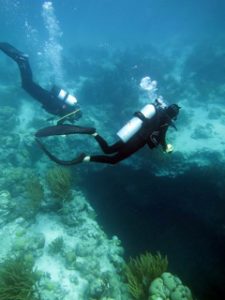
Part of what makes Field School special is the team we’ve brought together. Our captain and crew all have doctoral and/or masters degrees in marine or environmental science, have authored numerous scientific publications, and have a combined 25 years of experience in field education and outreach. We have developed short- and long-term training and mentoring opportunities for students, teach highly reviewed and award-winning university courses, and work with partner non-profits to create outreach programs for the public. We collaborate closely with our scientific advisory board and partner universities to develop the conservation and research projects our students work on, ensuring their time in our courses is professionally relevant and meaningful.
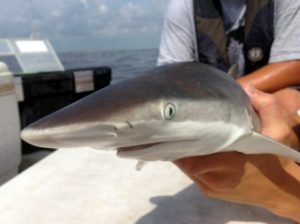
For scientists, we offer an unparalleled support platform from which to conduct research in southern Florida and the near Caribbean. Our educational expertise, logistical support, and experienced staff make it easy to include a university-level field course or citizen scientists in your research plan, which can help fund data collection while improving scientific education.
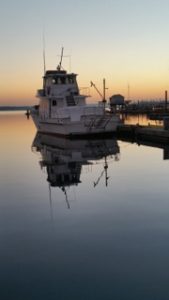
For students, we offer high quality, intensive, hands-on training and professional skills development through our live-aboard courses. Some of our courses are taught by partner academic researchers, and most by our experienced and credentialed staff of field scientists. Students get hands-on experience with marine science field techniques while participating in real ongoing scientific research.
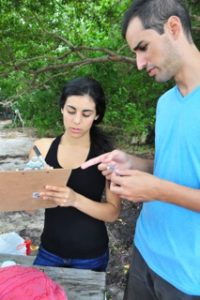
How can you get involved with Field School?
For researchers, program directors, or university staff, our services and support can be fully customized to your needs, in order to help you get the most out of data collection, outreach, and educational opportunities for students. Our research vessel, R/V Garvin, is a 55’ custom fully Coast Guard inspected and certificated live-aboard vessel, and is exceptionally laid out for research and education. The spacious back deck and large custom fiberglass platform are ideal for research diving or deploying scientific equipment. The full galley and spacious air-conditioned salon provide teaching space, and room to process samples or store and organize photography, cinematography, or scientific equipment. We are also equipped with a dive compressor, crane arm, water maker, and small inflatable tender, and have a conservative range of 550 miles on one fueling, allowing us to support a range of activities and research destinations from our home port of Miami, FL.
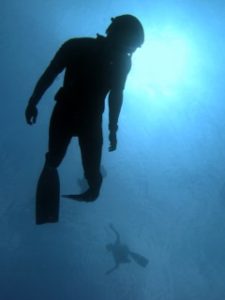
Our staff can also create a custom course that incorporates your research and data collection objectives into a full curriculum for your students. Student and citizen scientists paying to participate in a research course can greatly offset or sometimes completely cover the cost of the research vessel charter, allowing your grant funding to go further while expanding your education and outreach activities. Courses are customizable in length, with most ranging from one to three weeks, and are ideal for summer or spring break, or special shorter semesters (such as a “Maymester” or January-term course).

More details are available at our website. Those interested in creating their own course or customizing an existing course for their students, please contact us at julia@getintothefield.com to talk about how we can support your research or academic programs.
For students, we have two week-long live-aboard research skills courses that have open enrollment spaces available this summer:
Florida Keys Tropical Marine Biology and Ecology
This courses runs for 5 days, from July 25-29 and costs $2000/student (includes all field research activities, transportation once participants arrive in Miami, and all housing and food costs). During the course students visit mangrove and seagrass habitats, receive lectures on coral reef biology and ecology (including reef snorkels), and learn about tropical fish ecology, biology and identification. On the final day, students will learn about shark and ray ecology and biology, and get the chance to help tag and collect samples from large coastal sharks.

Elasmobranch (Shark and Ray) Research Field Skills Course
This course runs for 7 days, from July 17-24, and costs $2550/student. This field skills course is designed for students who are passionate about sharks and interested in pursuing undergraduate or master’s field research on these amazing animals. It includes in-depth instruction on shark handling and work-up procedures, including the collection of morphological measurements, as well as training in numerous fishing methods, including longlining, gillnetting, and the use of drumlines.
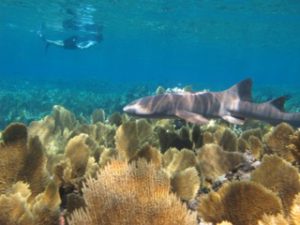
Students will gain experience fishing in estuarine, inshore and offshore environments, and will be taught how to safely restrain sharks of various sizes and species. In addition to field days, this course includes significant classroom instruction on shark biology and ecology, field research skills and techniques, and experimental design. We also include an optional but highly recommended workshop on communicating with the public about your research–especially important for those who plan to study animals that are dangerously misunderstood. Species that may be caught include: Atlantic sharpnose, lemon, sandbar, bull, spinner, sand tiger, blacktip, bonnethead, tiger, hammerhead, and southern stingray.
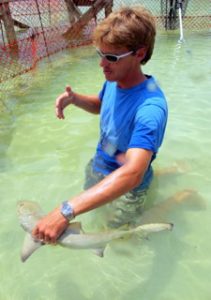
We are scientists and teachers who have chosen our career paths because we love field science and our students, and the current training structure for academic scientists often neglects practical skills that students need to succeed. If you want to know how previous students feel about the training they received working with us, please check out the testimonials page on our website
If you have questions about who we are or what we do, don’t hesitate to reach out to us!
Book a trip by May 20th using offer code SFS2016 for 10% off joining one or more of our courses!